The former Australian prime minister on the importance of finding your identity in Christ and why he doesn’t care about his political legacy
When we decided to start the ‘Babel Undone’ podcast we had two goals in mind. We wanted to have interesting conversations and we wanted to bridge the divides in the Church. As we say in the introduction of every episode: “Bishop D’Souza comes from the East (India) and I (Johnnie) come from the West (America); so, naturally, we meet in London.” We’ve spoken to victims of the 7 October terrorist attack in Israel, leaders of global Church movements and lots of authors and newsmakers – some famous and some not.
Our most recent guest was the former prime minister of Australia, Scott Morrison. Given he has a new book out, you may already know the drill. After public service, political leaders have a tradition – they write a ‘tell-all’ memoir about their time in office. It’s partly about preserving the historical record and partly personal legacy management. More than once, we’ve heard former politicians channel a quote by Winston Churchill, apocryphal or not, that the best way to manage history is to write it yourself.
But the 30th prime minister of Australia shocked us all because, instead of rushing out to write an account of his own time as leader, he’s written something entirely different. The protagonist of Plans for Your Good (W Publishing) is not Scott Morrison, but Scott Morrison’s God. The back-and-forth about public life is elegantly placed against the backdrop of his personal commitment to faith in Jesus Christ. It has plenty of interesting political titbits for sure, but the focus is clear. Scott Morrison shows no signs of thinking of himself as a political messiah but, rather, a person who is most proud to be a child of the living God.
As leader of the Liberal Party, Morrison led Australia from 2018-22 – through the complexity of the Covid-19 pandemic, wildfires, recession and a harrowing time of competition with an increasingly assertive Communist Party in nearby China.
Through all the machinations of politics, he faced a torrent of criticism – which comes from friend and foe alike in public life. But he left the job with his soul intact. We discover how he did it, and how you, too, can integrate faith into your everyday life.
Who is Scott Morrison? What makes you tick?
I am a follower of Jesus – that’s where my main identity comes from.
I’m a dad and a husband of over 30 years. We’ve got two wonderful teenage daughters who, thankfully, I get to spend a lot more time with these days, post-politics.
Your enemies will tell you that you did a terrible job, and your fans will say you did a wonderful job. Ultimately, my identity does not rest in those judgements
Have you always had a faith?
My life from a very young age has been underpinned by my faith. It is not something I’ve prosecuted from a political point of view, it’s just who I am. I’ve always sought to be quite transparent about that. On occasion that’s caused a bit of controversy, or I’ve been misunderstood, but I think that’s what Jesus said it would be like – people wouldn’t always understand.
Questions of identity are very important to you, and you write about them in your book. In a sermon by the late Tim Keller, he says one of the answers for the modern world is to grab hold of identity in Christ, because once that is clear, then you can begin to deal with the other problems.
I think that’s absolutely right.
This issue of identity drives young people today. What I try to say is: “Don’t lessen your humanity by confining it to your race or gender.” These are attributes of who you are, but they’re not who you are. One of the challenges of the identity-driven agenda, particularly in the West, is that people limit themselves to being defined by grievance, based on these attributes. And God, through Christ, completely and utterly releases us from that. It’s incredibly liberating. Identity is what people are seeking, and they can find it. They’re just looking in the wrong place.
The wonderful thing about Christianity is that it is the big leveller. We’re all the same. We might get called to do different things in our lives and have different experiences, but no one is greater than any other.
One of the problems we have is that Christianity in the West is often seen as a white religion. But that’s ridiculous. There are Christians in India, Africa, China, Iran…The idea that Christianity is some sort of Western cultural epidemic that has inflicted its injustices on the world for the last 2,000 years is absurd. In the book, I really try and deal with that.
You want a more Christian society? Well, live like a Christian in your community. That’s where it comes from
You served your country during a rare moment in human history, where literally, no one knew what was happening next and the whole world shut down because of the pandemic. When you were sitting in your office, with all of that responsibility, how did your faith help you?
It gave me a sense of peace and calm. I had no doubt that whatever challenges I was facing, I had been prepared for that time. Sometimes this is misunderstood, particularly in secular circles. People think I’m saying: “God made me prime minister.” No, that’s not how I think about it. We all have paths in life, and they take us down particular roads. And my faith told me: “Wherever I end up, [God] is going to be with me, he’s going to prepare me and will enable me in those circumstances.” I still had to make the decisions, I still had to run the government, I still had to ensure we were getting the right information and being very careful about the decisions we were making. That was up to me, but faith gave me a peace, a calm and a confidence that I hadn’t been thrust into something for which he hadn’t prepared me.
Politicians often get very obsessed about their legacies, and what people say about their time in office. I used to confound journalists because, when they asked me about legacy, I’d say: “Well, I’m just doing the job. Legacy will be what it will be, and you’ll write about it. But frankly, there’s only one book I’m interested in, and that’s the Book of Life. And, you know, the entry in there is pretty good, and I’m happy about that.”
I’ve been around politics a long time and what others think is highly subjective. Your enemies will tell you that you did a terrible job, and your fans will say you did a wonderful job. History will find itself somewhere in between those two things. But, ultimately, my identity does not rest in those judgements. It rests elsewhere. And that gives me a real peace and confidence.
Without that kind of faith, at the end of the day, life is hollow, isn’t it?
I would always look to colleagues and wonder how they dealt with the uncertainties of political life without a faith. I have no idea how I could have spent so long in politics without [my faith]. That is a mystery to me.
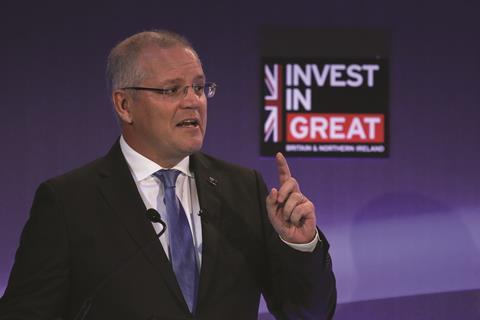
Were there challenges associated with being a Christian in politics as well as benefits?
I noticed during the time that I was prime minister, there was an increasing hostility and lack of tolerance towards Christian faith in our society. And that’s true in most Western countries.
Evangelical Christianity is seen as a bit out of the mainstream in Australia. I think some people had the wrong ideas about that. There was a heightened sensitivity to any association of faith and politics in a deeply secular mindset, which was dominating things like media and political commentary. But I just tried to be transparent and say: “Look, I am a Christian, I go to church.”
Sometimes, I think Christians thought that I was supposed to just be their prime minister. But I was the head of government for all Australians, regardless of what their faith was. Sometimes people want politicians to change the culture of the society to make it more Christian. But you can’t contract that job out to the politicians. It’s the Church’s job! You want a more Christian society? Well, live like a Christian in your community. That’s fundamentally where it comes from.
How did you experience the goodness of God while serving as prime minister?
As prime minister, I had the great privilege of finding myself in a lot of situations where I could do some real good. Whether it was mental health, or how we got people through the pandemic, or the courage we showed in standing up to China, I found [God’s] strength a source of great energy and encouragement. But the real blessing was in his presence. In difficult times or in good times, I could seek him and I could find him. And that gave me clarity.
In political life, there’s an enormous amount of information coming at you and pressures and decisions [to make] 24/7. Your opponents and others are attacking you – it can be a very exhausting vocation. And in all of that madness, [God gave] me peaceful spaces. And that was really important.
It’s like in cricket: sometimes, batsmen will talk about how they see the ball coming to them slowly, even if it’s coming at them really fast. I often found that when I was dealing with very complicated issues and situations, things slowed down, and I could see them, even though they were moving incredibly fast. That was an important blessing that I experienced in the job. It was finding those places of peace and calm in the midst of incredible pressure and stress and, often, chaos.
During those awful ten days when we were evacuating 4,000 people out of Afghanistan, we had to make some pretty critical decisions which impacted people’s lives. God provided the headspace for me to be able to lead through those very difficult days, and we were able to save a lot of lives.
You won’t find your identity and purpose in politics
There are countries where rather than the prime minister being a Christian, the government is actually suppressing the faith of believers. In those cases, it’s so easy to deny one’s faith, and yet so many persecuted Christians hold on. What do you make of that?
I’m in awe of them. And those are the places where, frankly, we are seeing the Church grow most quickly.
In the West, how many services have you been to where everybody’s praying for revival? Well, perhaps the revival will actually come through something like that [persecution]. Be careful what you wish for!
What would you say to a Christian who would rather avoid politics altogether?
Young people today – quite rightly – know that not everything is right in the world. And they are looking for ways to make a difference. Some have looked towards political causes to find purpose and meaning, and to try to make the world a better place. You see this in social justice concerns around climate action. My warning to them is: You won’t find your identity and purpose in those things. You won’t find it in politics. By all means, be in politics – I think it’s important for Christians to do that – but if you think that’s where you’re going to find ultimate meaning and purpose, you will be disappointed. Your faith comes first when it comes to meaning and purpose.
Now that I’ve left politics, people are always a bit surprised that I’m so calm and relaxed. But things end. Political lives end – rarely the way that politicians would like – but you move on. If my identity was defined by being the prime minister of Australia, I would find things tough.
I would encourage young people who are Christians to go into politics. But whatever your vocation is and whatever you find yourself doing – whether prime minister, police officer or teacher – try and live out your faith in that environment.
Scott Morrison was speaking to Johnnie Moore and Bishop Joseph D’ Souza. To hear the full interview listen to Premier’s ‘Babel Undone’ podcast. Available now at premier.plus or wherever you get your podcasts from.
Plans for your Good: A prime minister’s testimony of God’s faithfulness by Scott Morrison (W Publishing) is out now
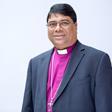













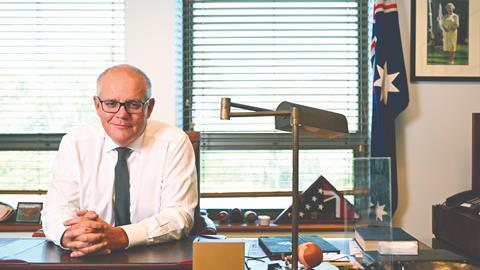


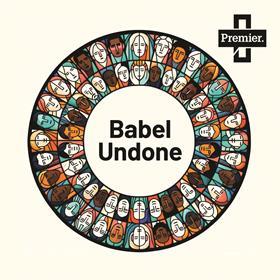
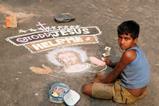
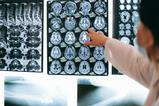


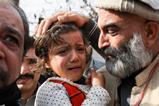
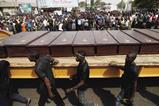





















2 Readers' comments